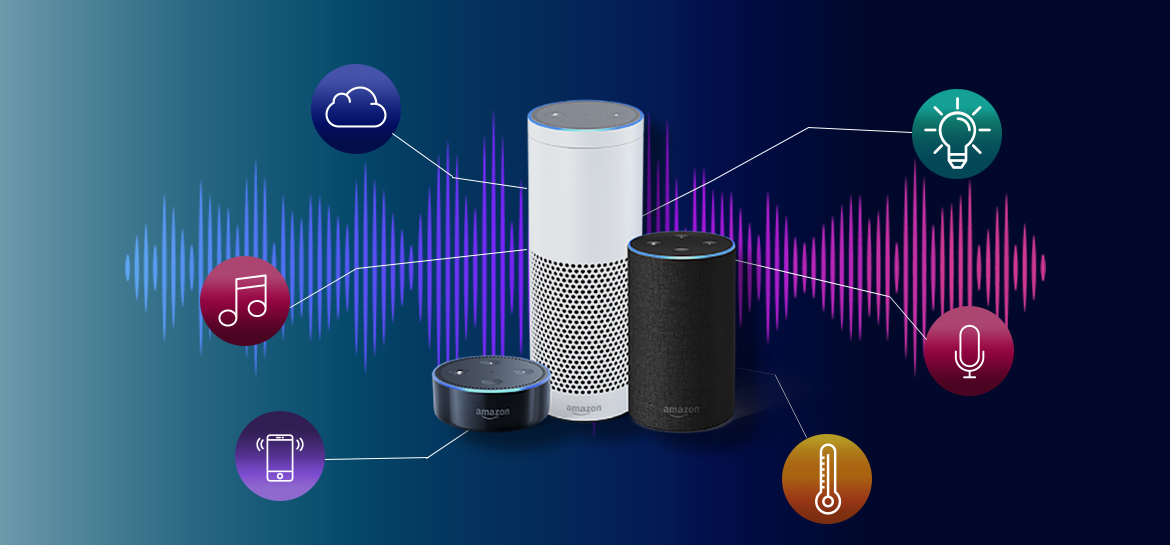Since the launch of early voice assistants such as Siri, voice technology has grown exponentially, now gaining the recognition it deserves rather than being considered a novelty. EY’s latest digital home report found that 22% of UK homes own smart speakers, which is double the figure recorded in 2017 (11%).
Voice technology slots into a wider trend where people want things more immediately, efficiently and conveniently. Businesses are increasingly using voice tech to distinguish themselves from their competitors.
In this blog post, we explore the top three trends that are currently affecting voice technology and what we think the future holds.
Voice technology beyond the home
From setting a timer for dinner to asking what the weather is like at the weekend, voice technology has made everyday tasks in the home easier. It is now moving beyond the home to help business processes and improve efficiency.
Some ways in which voice tech can help a business are more obvious than others. For instance, managing calendars, dialling into conference calls and setting reminders are the natural extension of how we use smart speakers and voice assistants in the home. However, it can also improve communication with clients and streamline processes by enabling customers to place orders using their voice.
For example, in 2017 Aylesbury Vale District Council implemented a strategy to use artificial intelligence as part of its customer communications. The council has been solving simple queries using Amazon Echo voice technology, which has freed up their customer-facing team to deal with more in-depth enquiries. By saving time and resources, voice technology has saved money for both the council and Council Taxpayers.
Even smarter technology
Like most smart technology, voice technology is always improving. Apple voice assistant, Siri, for example, has undergone a number of updates, since its launch in 2011. However, one area of critique that has remained is that voice assistants and smart speakers still struggle with speech recognition, especially regional accents.
Where market leaders such as Amazon Echo and Google Home have fallen behind, it was recently announced that the BBC intended to launch its own smart speaker that would understand all British accents. Due to launch in 2020, the device will be built in-house, using recordings of staff across the UK to ensure the software understands them. The speaker will respond to voice commands related to BBC content including iPlayer, news and radio, so there remains scope for the technology to get even smarter.
Optimising content for voice search
In increasingly saturated markets, how a business ranks on search engines can make or break and voice is a vital part of any SEO strategy tasks. A report by ComScore found that up to 50% of searches could be made by voice in 2020, so businesses will have to review their SEO strategies to take account of this shift in consumer behaviour.
The main ways in which businesses can rank well on voice tech devices is by achieving featured snippets, improving website speed and with strong local SEO. With the continued growth of voice technology, it will be more even more competitive for businesses to rank above their competitors.
What’s next for voice technology?
Increased business use, updates to technology and an impact on SEO are among the trends currently affecting voice technology. However, as it continues to grow in popularity among both businesses and consumers, new trends will emerge. With the rise of smart cities, voice tech is likely to play a big role in connecting IoT devices together, particularly in the home. A challenge that still faces voice technology in the future is that consumers still have concerns as to whether devices are recording conversations. For the technology to be universally adopted, this issue will have to be addressed and solved.
SixPorts has experience in developing voice technology solutions to help businesses improve efficiency and streamline processes. Discover how we can help your business with voice-first tech and more by emailing hello@sixports.com or check out our Voice Technology solutions page.


 Custom App Development
Custom App Development Enterprise Apps
Enterprise Apps Progressive Web Apps
Progressive Web Apps Voice Tech
Voice Tech Augmented Reality
Augmented Reality Virtual Reality
Virtual Reality Web Design And Build
Web Design And Build Food And Drink
Food And Drink Retail
Retail Education
Education Legal & Finance
Legal & Finance Government & Councils
Government & Councils Life, Sciences & Health
Life, Sciences & Health Events
Events Lifestyle
Lifestyle Travel
Travel








